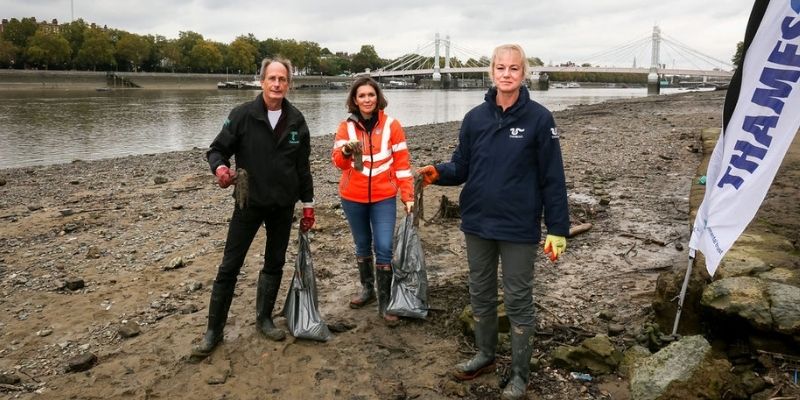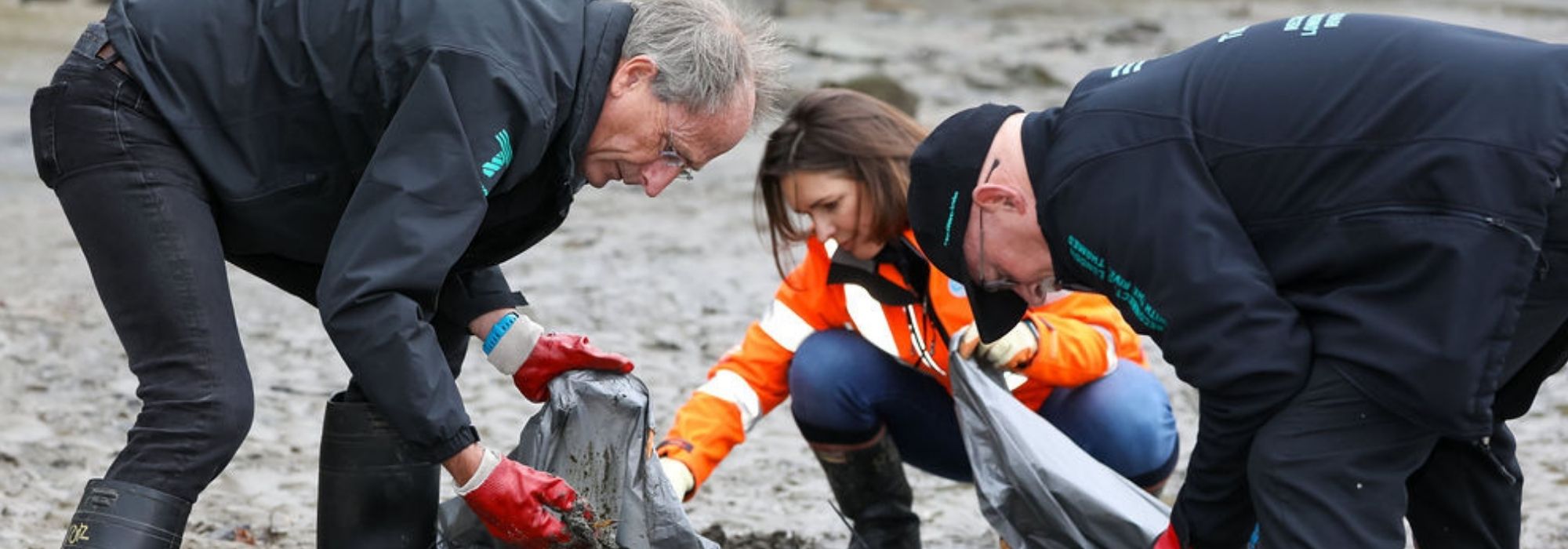Thames River Watch to involve wider London communities in new partnership funding phase
Thames Water and Tideway, the company building London’s new ‘super sewer’, have joined forces to fund environmental charity Thames21 to encourage more communities to tackle plastic pollution in the River Thames over the next three years.
The companies are jointly funding the next phase of Thames River Watch, a ‘citizen science’ programme run by Thames21, which trains and supports volunteers to collect new and valuable data about the ecological health of the Thames and helps Londoners to understand the environmental challenges it faces.
The next phase of the programme, called ‘Thames River Watch for All’, will involve broadening out the initiative’s volunteer base and building up its engagement with riverside communities. This will include a focus on recruiting volunteers from more diverse backgrounds and groups who are poorly represented in the environment sector, including ethnic minority communities and people on lower incomes.
To celebrate the new phase of the programme and highlight the problem of wet wipe litter on the Thames foreshore, CEOs Debbie Leach from Thames21, Andy Mitchell from Tideway and Sarah Bentley from Thames Water (see pic below) recently helped their teams to count and clear 2,780 wet wipes in a 200m (655ft) stretch between Battersea Bridge and Albert Bridge.

Commenting on Thames River Watch for All, Debbie Leach, CEO of Thames21, said: “We are delighted to be working with Tideway and Thames Water to work increasingly with local communities to raise awareness of the River Thames and help them to protect it. As we enter a new phase through the work of Thames River Watch for All, we envisage that all communities along the tidal Thames will be better informed about the issues facing the river, actively involved in improving the river and enjoy benefitting from its wide range of amenities.”
Andy Mitchell, Tideway CEO, said: “We are delighted to come together with Thames Water for the new three-year funding of Thames River Watch. Since we started funding this programme in the early stages of our project, Thames21 has engaged thousands of people along the tidal Thames, bringing them together to connect with the river and to tackle the problem of plastic pollution. With the Tideway project 70 per cent complete we are working even more closely with Thames Water and this joint funding demonstrates our shared commitment to London communities.”
Sarah Bentley, Thames Water CEO, said: “The River Thames is the lifeblood of London. It’s an amazing natural environment to be celebrated, enjoyed and protected. The Tideway super-sewer will play its part in the health of the river by stopping millions of tonnes of rainwater mixed with sewage from entering the water. I’m delighted that our joint funding of Thames 21’s Thames River Watch programme will help clean up the Thames even more for the people who live, work and enjoy recreation along the river, and the wildlife which calls it home.”
The programme has been running with Tideway project support since 2013 and has successfully helped to train Londoners to gather vital information on issues such as single-use plastic in the river and sewage-derived litter such as wet wipes.
To date the programme has trained more than 600 citizen scientists, seen more than 3,500 Londoners take to the Thames foreshore in activities which promote learning, action and enjoyment, and set up a network of seven volunteer-run ‘river action groups’ from Barnes in West London to Canvey Island, Essex in the Thames estuary.
The programme has illustrated the impact of plastic pollution on the tidal Thames by establishing a volunteer-led monitoring programme that identified, for the first time, the most common plastic items (i.e. wet wipes, food wrappers, cotton buds, and drink bottles) in the river. In total volunteers have collected more than 100,00 plastic bottles, half of them water bottles, and more than 500,000 wet wipes.
Key future workstreams include monitoring the impact of the new super sewer on sewage-derived litter in the river.
